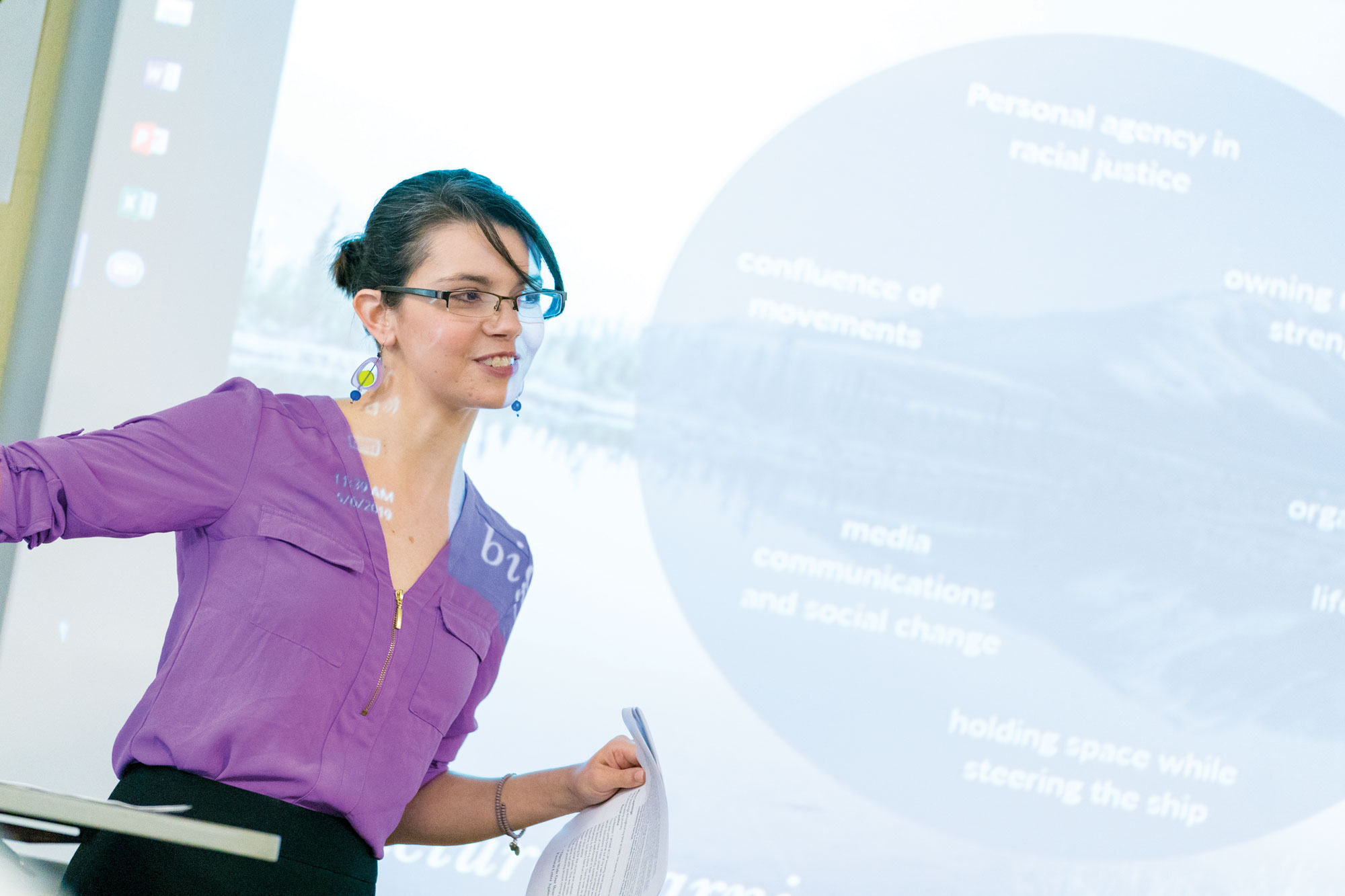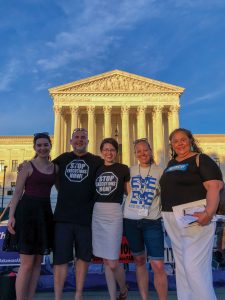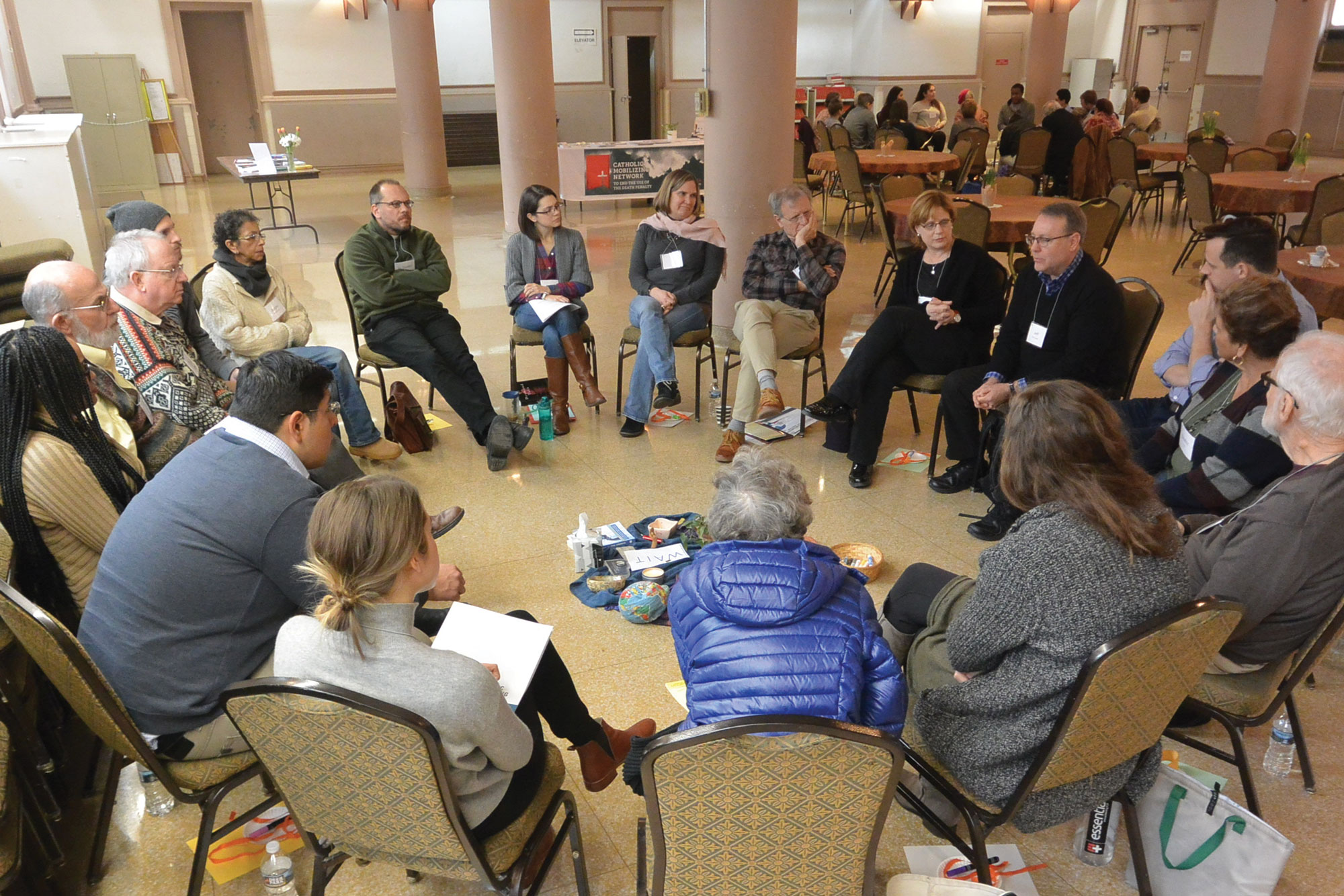
For Caitlin Morneau, the work of mobilizing the 20 percent of Americans who identify as Catholic began with cowriting a book foreword with Eastern Mennonite University’s Howard Zehr, an early translator of indigenous practices into the restorative justice movement.
The book, Redemption and Restoration: A Catholic Perspective on Restorative Justice (Liturgical Press, 2017), was a production of the Catholic Mobilizing Network (CMN), and Morneau, who is Catholic, was immediately drawn to the organization.
Just months later, in July 2017, she became its first director of restorative justice.
In her role, Morneau oversees RJ programming, the creation and publishing of educational materials, messaging and grassroots efforts for RJ advocacy. She also was the lead adapter for Harm, Healing and Human Dignity: A Catholic Encounter with Restorative Justice (Liturgical Press, 2019), a faith formation guide that introduces the topic in an “accessible and reflective” way, she said.
“Restorative justice values are consistent with Catholic principles including human dignity, solidarity and encounter,” said Morneau, who graduated this spring with a master’s degree in restorative justice from CJP. “They invite us into an entirely different way of thinking about justice itself, one that is healing and humanizing rather than vengeful and isolating.”

Based in Washington DC, CMN was founded a decade ago to embolden Catholics and others to advocate for the end of the death penalty and to promote restorative justice. The collaborative effort included the United States Conference of Catholic Bishops, murder victim family members, Dead Man Walking author Sister Helen Prejean and her religious order, the Congregation of St. Joseph. CMN calls for the transformation of the U.S. criminal justice system and works to build social capacity for restorative practices.
The movements are “mutually beneficial,” said Morneau. “Efforts to educate, pray and advocate for an end to the death penalty open doorways for people to learn about restorative justice who may not have otherwise heard about it, and when we create a more restorative culture, the death penalty becomes obsolete and irrelevant.”
CMN recently launched a blog for the people implementing RJ practices in Catholic settings to share stories, wisdom and lessons learned. It is also hosting two-day workshops leading up to a fall circles training, and will host a national RJ conference in 2020.
For her CJP practicum, Morneau – a self-described “systems thinker” – primarily focused on the internal workings of CMN. She established an organizational steering committee to provide vision for growing CMN’s RJ programmatic reach and to advance the RJ movement and integration of RJ ethics in Catholic contexts and ministries.
Among the committee’s members are Chris Castillo, whose mother was murdered, and Felix Rosado, co-founder of Let’s Circle Up inside the Phoenix State Correctional Institution in Pennsylvania, among a number of other experienced facilitators.

“If we are to be true to the movement, we need to create structures that allow us as an organization to be informed by the experiences of those doing the work in communities,” she said.
She has also worked on building strategic relationships with leaders and grassroots coalitions “in order to amplify prominent voices and mobilize the masses in calling for life and human dignity,” she said.
The Catholic church’s social teachings, while less widely known, are “a framework for peacebuilding, not something that’s separate from it.”
Morneau recognizes that a significant challenge in working closely with the Catholic community is the current clergy sexual abuse “reckoning.” As Catholics throughout the country are looking for responses to harm that uphold both healing and accountability, she is hopeful that a deeper understanding of restorative justice among Catholics will inform processes that center the voices of victim survivors and communities harmed while including individual and institutional accountability that facilitates amends and a new way forward.
The church’s extensive membership and structures are “capable of influencing great change,” she said. “We do this work because we believe that every human is made in the image and likeness of God, has inalienable human dignity, and deserves to be treated with dignity, no matter the harm that was suffered or caused. That drives everything that we do.”